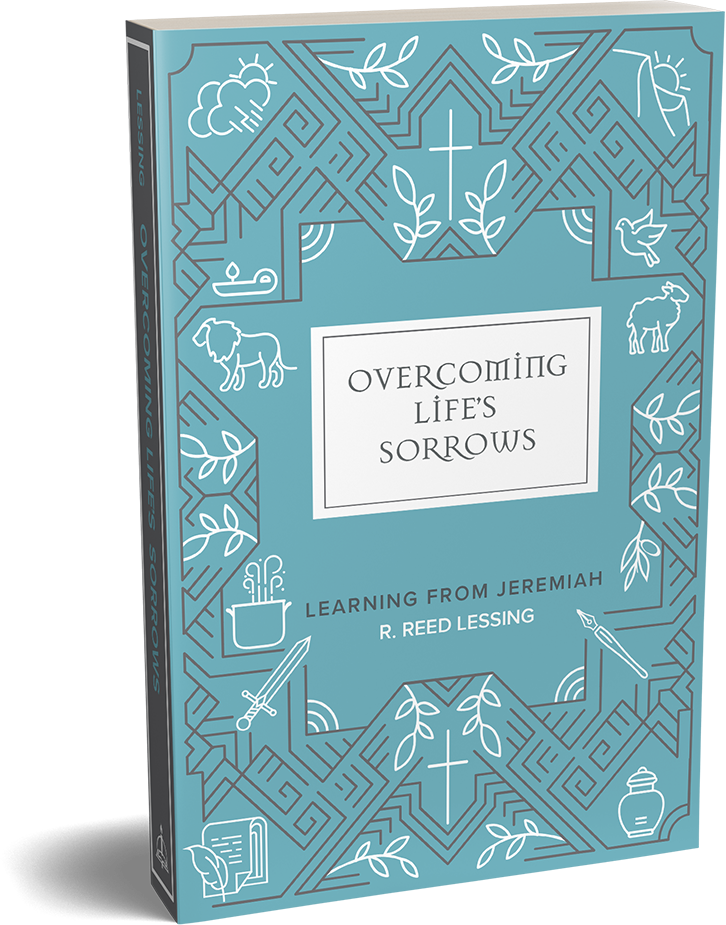Lessing, R. Reed. Overcoming Life’s Sorrows. St. Louis: Concordia Publishing House, 2021. 288 pages. Order here.
Loved ones die. Spouses abandon us. Children leave the faith. Unborn children die in the womb. Terminal cancer invades our bodies. Or, perhaps, we are sent to war in a foreign country only to return maimed and suffering. Despite our best efforts to avoid them, pain and suffering regularly appear in our lives.

In such situations, we look to the heavens and cry, “How long, O Lord? Will you forget me forever?” (Psalm 13:1). David’s cry in this Psalm mirrors the abandonment we feel as we watch or endure suffering, the scorn and rejection of others, or whatever trial God places upon us. In such moments, we have a sense of the abandonment felt by Israel in exile.
In his book Overcoming Life’s Sorrows, R. Reed Lessing reminds us: “Exile doesn’t negate God’s promises” (27). Rather than turning to self-help and self-improvement to fix our lot in life, Lessing turns us to Jeremiah to learn how to work through grief and suffering — again and again if need be. Jeremiah does not provide some special sauce to pour over our suffering to make it palatable, but he points us to Jesus Christ, who endured and overcame suffering, sin and death for us.
Lessing’s book, written for sufferers and caregivers alike, is neither commentary nor devotional, but a rich combination of the two. In 26 chapters, Lessing explores such themes in Jeremiah as “God’s Word,” “Confession and Absolution,” “the Good Shepherd,” “Faith,” “The Storm,” and so on. In all, he points to the great Shepherd of the sheep, Jesus Christ.
If, like many people, you are afraid to pick up this book because Jeremiah exists in what might be called the “fog of exilic history,” do not fear. If you have ever opened your Bible to Jeremiah and wondered what it has to do with anything, yet again, do not fear. In the first chapter, Lessing blows away the fog surrounding Jeremiah to tell his story — where he came from, what he endured, how he faithfully preached Law and Gospel to God’s people as they went into exile and how he fits into Israel’s history. If nothing else, consider purchasing this book to get this clear, concise summary of Israel’s exilic history.
In the end, Lessing will help you understand and appreciate Jeremiah as a tool for working through suffering, whether experienced as a child or adult, whether as a caregiver or the sufferer. You’ll understand how this prophetic book, in all its wandering, confusing chronology and vivid, disturbing imagery, pointed God’s people to the coming Messiah who endured suffering with and for them, and how you also, with Israel, have a Savior who endured suffering for you that your suffering might not be without meaning or purpose, but fulfilled and finished in Christ.


